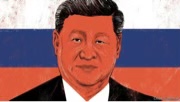(Thread IKs:
fart simpson)
|
yeah, I don't think Jackie Chan and Donnie Yen are either. NPC has a bunch of seats for the accomplished.
|
|
|
|

|
| # ? May 27, 2024 17:01 |
|
Eminent DNS posted:Android has always been big there tho. I’ve been curious if Chinese devs would develop their own alternatives to western operating systems. Both to make sure there’s no intelligence service back doors and be immune to any weird tech embargoes. I see huawei has something called Harmony OS for phones and tablets that most recently has split off completely from Linux and Android but I wonder if there are any desktop focused efforts. Even with Linux considering how strongly Western and allied tech aligns with US foreign policy objectives (both for Ukraine and Israel) I’m not sure how much I’d trust Western dominated open source if I was a US competitor.
|
|
|
|
FuzzySlippers posted:I’ve been curious if Chinese devs would develop their own alternatives to western operating systems. Both to make sure there’s no intelligence service back doors and be immune to any weird tech embargoes. I see huawei has something called Harmony OS for phones and tablets that most recently has split off completely from Linux and Android but I wonder if there are any desktop focused efforts. Desktop Kylin is a Linux based OS the military developed decades back for internal use. This has recently been made consumer friendly and made open source as OpenKylin 1.0, as part of a massive joint effort between multiple Chinese companies, headed by a Chinese SOE. It's available in Chinese and English atm. It's not the best distro yet, but it's progressing quickly.l and has massive resources behind it. https://www.openkylin.top/index-en.html Mobile You get Pure Android, which is like Linux and pretty independent and decent and might yet be the future for mobile. But the Default option for manufacturers is Android+Google, which has all the backdoors and nonsense, and makes most Western developed apps work. By sanctioning Huawei, it forced developers like myself to code better and not rely on easy Google Services that may not be available on every phone. It lay the groundwork to make it easier for other manufacturers to rely less on the Google bloatware and use Pure Android in the future. Harmony OS has the open source OpenHarmony version, which may form the basis of a new OS for mobile down the line. It's hard to replace android fully though, since it does work and you can skip the bloatware if needed. Xiaomi and other manufacturers may prefer to stay on Android even if they drop the Western spyware and Google nonsense.
|
|
|
|
They just need a backup alternative for google framework in case the US extends mobile software ban from Huawei to other export oriented Chinese brands. Apple and Samsung account for 40% of the global phone sells, I assume all the rest are Chinese (Xiaomi/OV/Huawei/ZTE/etc, OV is loosely associated group of Oppo, Viva, Realme, Oneplus) Huawei and its spinoff brand Honor don't rely on google framework. But the others do. If poo poo hit the fan its possible the State Dept make google stop offering google framework to Xiaomi and OV. Which means no Android app store and google map and some minor payment stuff. But its a nuclear option because all these phones will just be forced to immediately decouple. But once they do, the US can no longer hurt their sales. The OV brands are weird, they have different ownerships but share the same supply chain and R&D resource. 20 years ago, the Oppo largest share holder got himself a US citizenship before he came back to China and started the Oppo brand. It speculated that the State Dept has other ways to influence Oppo if they wanted too. For example Oppo started their own chip design division Zeku but promptly shut it down last year. Android itself is not an issue IMO. All brands already roll their own modifications of Android. The OS is open source enough that the US can't weaponize it. BTW I checked out the Linux phone recently because I really want that Pinephone hinged hardware keyboard. Linux mobile phone development is still a wild west. Normal people of the world will just have to use Android, without or without google framework.
|
|
|
|
https://economictimes.indiatimes.com/jobs/mid-career/in-indias-semiconductor-moment-spotlight-on-talent/articleshow/108336340.cms There is demand for 40,000-50,000 employees across job roles in 2024, a 25-30% increase over last year, says staffing company Randstad. The sector is expected to see more than 800,000 to 1 million job openings over the next five years. India’s burgeoning semiconductor sector is facing a surge in demand for talent, fuelled by new investments and the government’s ambitious plan to transform the country into a chip manufacturing hub. The government recently approved $15 billion worth of investments into the sector including from the Tata group. [...] US chipmaker AMD, which in July 2023 announced plans to invest $400 million in India over five years and create 3,000 new engineering roles, said it is hiring engineers across levels from similar hi-tech companies, partnering with academia for fresh engineers and hiring through employee referrals. [...] “The next chapter of semiconductor growth is ready to witness increased emphasis on advanced skilling, job creation and Samsung Semiconductor India Research (SSIR) will lead actively on all these fronts,” said Shivendra Srivastava, Head of People, Samsung Semiconductor India. mila kunis has issued a correction as of 15:00 on Mar 10, 2024 |
|
|
|
mila kunis posted:https://economictimes.indiatimes.com/jobs/mid-career/in-indias-semiconductor-moment-spotlight-on-talent/articleshow/108336340.cms .... Doesn't semiconductor manufacturing require a ton of water? Because, uhhhh, India is supposed to be turbo hosed over the next few decades by climate change irt the frequency of droughts, the lack of Himalayan snowpack, and all sorts of other fun stuff Though as long as the industry remains indoors they should be fine
|
|
|
|
stephenthinkpad posted:If poo poo hit the fan its possible the State Dept make google stop offering google framework to Xiaomi and OV. Which means no Android app store and google map and some minor payment stuff. But its a nuclear option because all these phones will just be forced to immediately decouple. But once they do, the US can no longer hurt their sales. This has convinced me that the USA will definitely do this.
|
|
|
|
its just a matter of time. it'd be criminally incompetent if they weren't working on a way to wean everyone completely off reliance on american software
|
|
|
|
https://twitter.com/IndieWire/status/1766554597890412663quote:One of Benioff and Weiss’ biggest changes to the books (along with their co-showrunner Alexander Woo) is in rewriting nearly all of the main characters.
|
|
|
|
quote:indelicate handling of racial and gender dynamics (the remaining Chinese characters in this once fully-Chinese story are barely developed, outright villainous, or both), 
|
|
|
|
https://english.news.cn/20240308/dd042f4bb08e4b858da327acfbc9547f/c.html BEIJING, March 8 (Xinhua) -- The use of new energy vehicles accounts for 77.6 percent of China's public transport system, Minister of Transport Li Xiaopeng said Friday on the sidelines of the ongoing "two sessions." Talking about the achievements made in the development of transportation, Li said China has seen rapid development in green and smart transportation. The country has been accelerating the construction of smart roads, smart railways and smart ports. New energy and clean energy equipment have been more widely used, he said. Li also said the country has built the world's largest high-speed rail network, expressway network and postal express delivery system, as well as a world-class port cluster. China's transportation service support capacity has seen continuous improvement, and China has been strengthening transportation cooperation with other countries, he added. The "two sessions" refer to the annual meetings of the National People's Congress and the National Committee of the Chinese People's Political Consultative Conference. ■
|
|
|
|
mila kunis posted:its just a matter of time. it'd be criminally incompetent if they weren't working on a way to wean everyone completely off reliance on american software its happening. it was mentioned up thread, the chinese android effort is decoupling by leaps and bounds with each release. there was a major announcement on that front around the time of the latest huawei phone release. I don’t remember the details because of american internet poisoning. it was overshadowed by the advances in chip manufacturing
|
|
|
|
Danann posted:https://english.news.cn/20240308/dd042f4bb08e4b858da327acfbc9547f/c.html what's a smart road?
|
|
|
|
genericnick posted:what's a smart road?
|
|
|
|
genericnick posted:what's a smart road? I can't really tell https://www.chinadaily.com.cn/a/202309/14/WS65027211a310d2dce4bb5aec.html Seems like they're building infrastructure to be paired with self driving vehicles, if they're ever allowed to exist? For now the smart roads largely just turn their lights off when there's no traffic to save on electrical consumption
|
|
|
|
there was an old pipe dream of having f-zero esque charging lanes for electrics or ways to combine blacktop and solar panels but I don't think either is really feasible.
|
|
|
|
Wasn't there a Chinese language adaptation recently, I thought I had it bookmarked on YouTube but couldn't find it
|
|
|
|
Not So Fast posted:Wasn't there a Chinese language adaptation recently, I thought I had it bookmarked on YouTube but couldn't find it https://www.youtube.com/watch?v=_HJVhC80vIE
|
|
|
|
Not So Fast posted:Wasn't there a Chinese language adaptation recently, I thought I had it bookmarked on YouTube but couldn't find it yeah but I keep falling asleep trying to watch it
|
|
|
|
Second Hand Meat Mouth posted:yeah but I keep falling asleep trying to watch it thats because its a sprawling drag, at turns disorienting in its use of inconsistent CGI to convey the story’s aggravating approach to character development and existential quandaries.
|
|
|
|
In Training posted:I can't really tell When 5G war started, there was great talks of using 5G to communicate between autonomous driving cars to provide safery driving environment. I find it weird that Huawei hasn't announced a standard for car talking protocol, since they have been selling cars for a couple years.
|
|
|
|
Votskomit posted:This has convinced me that the USA will definitely do this. mila kunis posted:its just a matter of time. it'd be criminally incompetent if they weren't working on a way to wean everyone completely off reliance on american software You know how ARM got around the "tech company being forced to choose between China or US" dilemma? They created an " ARM China" licensing company, which is a classic 51% China ownership company inside China. ARM licenses their chip design to ARM China, and AC licenses the designed to Chinese companies (Huawei, set top chip makers, embed chip makers) and these companies can continue to develop and modify ARM designs up to V8, but not the newer stuff in last couple years) ARM China also has power to sell perpetual licenses to fork a chip design, which I think new ARM stuff no longer allowed. As far as I can tell from a laymen's angle, this is an analogy to ARM switching from retail game disc to cloud gaming, but they opened a loop hole and allowed Chinese customers to buy all old games on disc. So back to google framework, if google cares about having the Play store and google map service available to every device in the world in the future, they would have to spin off that part of the service out of a US company's hands.
|
|
|
|
stephenthinkpad posted:You know how ARM got around the "tech company being forced to choose between China or US" dilemma? It could still be a possibility, but I think spinning off/having a separate search for China was a direction they were going initially, but just abandoned the idea all together after bad press about it. That was a different era and product area though, maybe they'll do that.
|
|
|
|
Second Hand Meat Mouth posted:yeah but I keep falling asleep trying to watch it https://disembiggened.com/
|
|
|
|
strange feelings re Daisy posted:It's 22 hours, which is way too loving long. You can feel it dragging when you watch.There's a fan edit I liked which cuts it down to a more reasonable 6 hours: hmmm thank you that's a lot more interesting...
|
|
|
|
Lol jesus
|
|
|
|
stephenthinkpad posted:When 5G war started, there was great talks of using 5G to communicate between autonomous driving cars to provide safery driving environment. I'm just gonna take a wild guess, but since that is a logical "next step" for autonomous driving I can only imagine that either there are tons of problems to solve before 5G Car Talk (with Click and Clack) or that it just presents a whole new set of problems to tackle. The whole thing with AI applications is people keep pointing to massive leaps in error reduction, but it's a Zeno's paradox thing where if you keep halving the error rate it's still gonna take years to get to human capability. It doesn't help that it probably needs to be better than human because human errors and machine errors have some differences, and people may freak out at AV mistakes that are "minor" from the engineer perspective.
|
|
|
|
Eminent DNS posted:It could still be a possibility, but I think spinning off/having a separate search for China was a direction they were going initially, but just abandoned the idea all together after bad press about it. That was a different era and product area though, maybe they'll do that. bad press from the CIA and NSA maybe
|
|
|
|
crepeface posted:bad press from the CIA and NSA maybe Well yeah
|
|
|
|
Someone criticize or vibe check this position I've been leaning towards Both the USSR and the PRC attempted liberalization. It destroyed the USSR but massively boosted the PRC. And while I'm sure there's plenty to criticize in the way the USSR went about it, the ultimate reason it failed there but succeeded for China is that any similar or dissimilar flaws (or meritorious features) in the Chinese model were irrelevant due to the sheer volume of capital and technology transfers coming in which were denied to the Soviets, under a capitalist embargo. In other words, the quantitative aspects of liberalization completely dwarfed and subsumed any qualitative defects.
|
|
|
|
mila kunis posted:Someone criticize or vibe check this position I've been leaning towards i think that's possible, but is it the whole story? if liberalisation useless without western support, then why was the west willing to play ball with china, but not the USSR? did the USSR fail at extracting enough concessions from the west for liberalization, or was the US just trying to back the weaker China? imo, the capitalist powers wanted the resources of the USSR and the markets/labour of china so the strategy to deal with the west should've been different. you're much better versed in theory than i am, so take a look at this and tell me how relevant/correct you think it is: https://learningfromchina.net/witnessing-at-first-hand-the-ussrs-disintegration-made-me-intensely-understand-the-scale-of-chinas-success/ (here's the relevant bit i think) quote:Marx’s analysis, from the first formulation of historical materialism in The German Ideology through to Das Kapital and his last works, was that human and economic development was based on the increasing socialisation of labour. Indeed, the very word “socialism” derives from “socialised” labour and production. In Marx’s analysis each mode of production saw a greater socialisation of labour than the one before, until finally the enormous socialisation of labour in large scale capitalist production produced the preconditions and necessity of socialism. also, maybe this is better for the marxism thread if that guy in there has finished posting about hitchhiker's guide to the galaxy and rectangles.
|
|
|
|
https://twitter.com/IranSpec/status/1766286687179813019 more trains for the train god
|
|
|
|
https://twitter.com/ArmoredWar/status/1766797084341027011?s=19 Pinoy guy named Rommel driving an Israeli tank
|
|
|
|
gradenko_2000 posted:https://twitter.com/ArmoredWar/status/1766797084341027011?s=19 I did a double take on that and…is that his first name? am I correct in guessing that Rommel is not exactly a typical Filipino name?
|
|
|
|
it is a funnily common name. Like us with Hitler. I remember reading in the paper about an activist named Hitler Khan.
|
|
|
|
Best Friends posted:I did a double take on that and…is that his first name? am I correct in guessing that Rommel is not exactly a typical Filipino name? That is his first name, yes. It's not a particularly rare Filipino first name, but dads named their kids that for exactly the reasons you might think.
|
|
|
|
lol Guess they https://youtu.be/CzHJK4Qsrow Edit: Oh I didn't see I was maliciously and duplicitously redirected to a different thread! PhilippAchtel has issued a correction as of 09:18 on Mar 11, 2024 |
|
|
|
Danann posted:https://twitter.com/IranSpec/status/1766286687179813019 I looked up this 791 number in a different article. They are talking about subway rolling stocks. I am pretty sure the Tehran metro already uses Chinese standards, they look exactly like Chinese metro from youtube videos. There are talks of "Sino-Iran trade has not increased as much as the signed strategic deal promise" in the article, which I have read before in other articles. I have never read any explanation why that is in either English or Chinese reports. This is a topic I am interested in.
|
|
|
|
PhilippAchtel posted:lol
|
|
|
|

|
| # ? May 27, 2024 17:01 |
|
mila kunis posted:Someone criticize or vibe check this position I've been leaning towards China only liberalized the consumer market economy in the 80s 90s, it took a long time to open the other markets (education, medical, finance), the political realm was not "liberalized". I will give you that China got better market opportunity than the Soviet Union. I don't buy the tech transfer angle anymore. Technology for the most part, is just an organic attribute of the market production volume, once you have enough production, technology improvement will come with it. It's not something you can monetize or control. Yes the Anglos has been trying to monetize technology on the stock market and control it thru patents and copyrights and ISO type bodies. But there is no evident technology can be controlled in the sectors China entered first (consumer manufacturing). As for the main reason why reform didn't work in the Soviet Union. Who knows maybe the USSR was too ideological. I recently read a new take: it took two to tango in the cold war. If the Soviet didn't want to engage, the cold war wouldn't have unfolded the way it did. Currently China doesn't engage in cold war 2.0 with the US. Like the congress pasted a new anti-China bill every 2 months, Beijing just doesn't react to it. There is no cold war 2 if Beijing doesn't want one. The Mao motto for this strategy is "You fight yours, I fight mine."
|
|
|






























